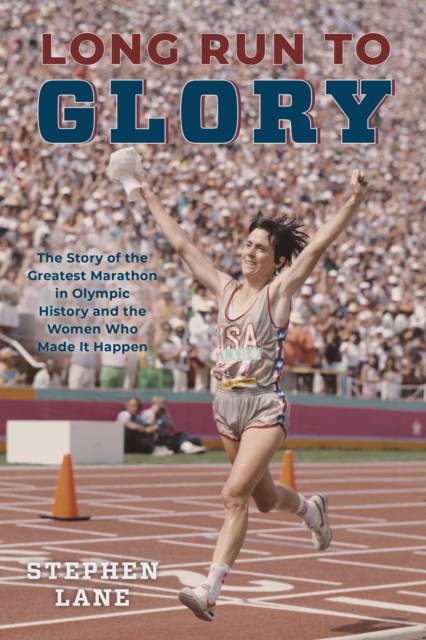
- Afhalen na 1 uur in een winkel met voorraad
- Gratis thuislevering in België
- Ruim aanbod met 7 miljoen producten
- Afhalen na 1 uur in een winkel met voorraad
- Gratis thuislevering in België
- Ruim aanbod met 7 miljoen producten
Long Run to Glory
The Story of the Greatest Marathon in Olympic History and the Women Who Made It Happen
Stephen LaneOmschrijving
On the morning of August 5, 1984, four of the greatest marathoners of all time lined up for one of the most important and long-awaited races in history. By then, they had dominated their competition for at least five years, upending a century's worth of preconceived notions of what marathoners could do. By decade's end, they had lowered the world record a total of 13 minutes, won 27 major marathon titles, and swept every Olympic and World Championship held in the 1980s. And, in their careers, only once did all four--American Joan Benoit, Norwegians Grete Waitz and Ingrid Kristiansen, and Portugal's Rosa Mota--square off in the same race: at the 1984 Los Angeles Olympics, in the first-ever Women's Olympic Marathon.
Such was their talent that Benoit, the world record holder, entered the race as the underdog. She'd had knee surgery in April, and no one, least of all Benoit herself, was certain she could hold up for 26 miles against her three rivals. Waitz, the former world record holder, was the favorite--she had destroyed the field at the 1983 World Championships and had never lost a marathon she had finished. Kristiansen, who had beaten Waitz twice in the summer of 1984 (albeit at shorter distances), was considered the fastest woman in the race: she held world records at 5,000m and 10,000m, and would break Benoit's marathon record in 1985. Mota had beaten Kristiansen at the 1982 European marathon championships, and was already earning a reputation for raising her level in the biggest races.
This is their story, and the story of the first women's Olympic Marathon.
Specificaties
Betrokkenen
- Auteur(s):
- Uitgeverij:
Inhoud
- Aantal bladzijden:
- 296
- Taal:
- Engels
Eigenschappen
- Productcode (EAN):
- 9781493073023
- Verschijningsdatum:
- 5/09/2023
- Uitvoering:
- Hardcover
- Formaat:
- Genaaid
- Afmetingen:
- 165 mm x 235 mm
- Gewicht:
- 607 g

Alleen bij Standaard Boekhandel
Beoordelingen
We publiceren alleen reviews die voldoen aan de voorwaarden voor reviews. Bekijk onze voorwaarden voor reviews.












